|
09 February, 2005
Nigerian Supreme Council for Islamic Affairs (NSCIA), As Salam Alaykum Waramotullahi Wabarakatuh. Muslim Public Affairs Centre (MPAC) is pleased to note that the Federal Government has allocated slots to the Nigerian Supreme Council for Islamic Affairs (NSCIA) to represent the Nigerian Muslim constituency at the planned National Political Reform Conference. We, no doubt, are aware that the NSCIA and its representatives will do well to represent the interest of Muslims and Islam at the conference, as we feel proud to be associated with the challenges of the group in carrying out its work and also the successes it has recorded. However, we feel obliged as a group whose core objective is the advocacy of the defense and protection of Muslims rights and interests, to contribute our thoughts and ideas which may add to the talking points of Muslim representatives at the conference. The issues that affect us can be cataloged as, but not limited to the following, in no particular importance/priority order: |
|
|
1. Institutionalized Islamophobia |
|
|
a. In Schools and NYSC camps |
|
|
Issue: |
In many schools across the country and at the National Youth Service Corps (NYSC) orientation camps, female Muslim corps members face untold hardship and suffer constant harassment at the hands of school officials, school agents, co-students and camp officials over the use of hijab or refusal of female Muslim students in hijab to don the short knickers for exercises at NYSC camps. Such harassment and ill-treatments have been reported to MPAC in the past by Muslim victims and cataloged as part of anti-Muslim biases and anti-Muslim sentiments being experienced by Nigerian Muslim students. Some of these problems include denial of posting to places of primary assignments. |
|
Talking Points: |
Freedom of expression (which includes freedom of religious expression) and freedom of association guarantee wearing of decent apparels in which one is comfortable. It is MPAC’s strong position that all schools in Nigeria guarantee for its students free atmosphere for religious expression. Also, government funded programmes, like NYSC, must not truncate or violate the right of the citizens to freely practice their faith nor affect their right to self dignity in an atmosphere that is free from bigotry and prejudice. To combat the prevalent malpractices, Government must formulate and commit itself to stronger anti-discriminatory policies and laws. There has to be a provision in the NYSC Act that permits Muslim women to wear Shariah-compliant dressing and/or a dressing code that allows Muslim dress code. The improved NYSC Act should require NYSC to make conscientious efforts to reach out to the faith communities. |
|
b. Discriminatory Employment Treatments. |
|
|
Issue: |
Several companies and organizations discriminate against employing Muslim women wearing scarf, or in some cases brothers with beard. There are instances where they are forced to make a choice between getting a job or career progression opportunity and taking off the scarf or cutting the beard short. |
|
Talking Points: |
Companies must be made to formulate and openly commit to employment policies that promise equal employment treatments to the Muslim citizens of our country. As are the cases in other progressive societies, the core employment suitability requirement must be merit based on the candidate’s proven and demonstrable ability to operate efficiently in that position. Unfortunately, for many companies in Nigeria, the current situation is an open and warrant affront on our pluralism where a suitable candidate is discriminated against based on a piece of cloth covering the head or a beard; features that many employers prejudicially classify as not conforming to corporate symbol or appearance. Such practice is capable only of excluding an equally important section of our society- the Muslims- or an equally important segment of the Muslim community- the Muslim women, who have the requisite skills and knowledge to offer. The undeniable effect of this practice is the imminent higher unemployment rate among Muslim women with hijab than their counterparts of other faiths. (The tactics commonly used to achieve this is to impose mostly unwritten and illegal discriminatory policies against the Muslims.) Furthermore, such widespread practice remains a potent threat to our cherished ideals, shared values and aspirations as a nation. Examples of companies that openly practice equal employment policies, and the apparent benefits of such policies, abound in Europe and USA where organizations are mandated by law to accommodate diversity and promote equality, (e.g. the EU’s Council Directive 2000/78/EC of 27 November 2000), even multinational companies based in Nigeria set for themselves and uphold these foreign employment standards to their benefits and the benefits of the nation. MPAC submits that all Nigerian companies must be held to account on the same standard of reflecting and promoting the notion of a multi-faith, multi-ethnic Nigeria in their employment treatments. Enabling law must be made to make it a punishable crime for organizations to willfully act in a way that will directly discriminate (direct religious discrimination are acts of inequality that occur when an employer treats someone less favorably on the ground of their religion or beliefs than they treat others, would treat others, in the same circumstance) or indirectly discriminate (indirect religious discrimination occurs where an apparently neutral ‘provision, criterion or practice’ would place a person of a religious belief at a particular disadvantage compared with other persons unless such a provision, criterion or practice can be objectively justified by a legitimate aim and the means of achieving that aim are appropriate and necessary) against (prospective) employees. There are apparent anomalies in the current laws which allow employers to act with impunity and the widespread of discrimination against Muslims in the workplace is an advertisement of the inadequacy of the law. Those anomalies will be reinforced if the conference concludes without addressing this issue and as such there must be coordinated efforts to tackle and remove them. |
|
c. Friday Worship |
|
|
Issue: |
Most Muslim employees have problems attending Jum’mat service while at work. |
|
Talking Points: |
This forms an aspect of the common workplace employment-related mistreatments experienced by Muslims. However, it occupies a special place in the heart of the working Muslims and must be treated separately because this unfairness is as a result of the Federal Government own discriminatory policy which has failed to accord equal recognition to Muslims’ day of special worship. As is the case of Saturday and Sunday which are worship days, employers must be mandated by an enactment of the Federal Government to grant break periods on Fridays to enable Muslims worship.
MPAC strongly believes in the right of people to be able to observe their religious duties in the workplace without hindrance and threat to their careers. MPAC advocates that enabling law must be formulated to prohibit employers from discriminating against individuals because of their religion in hiring, firing, and other terms and conditions of employment. The law must also require employers to reasonably accommodate the religious practices of an employee or prospective employee, unless to do so would create an undue hardship upon the employer. Flexible scheduling, voluntary substitutions or swaps, job reassignments and lateral transfers are examples of arrangements that MPAC suggests to accommodate a Muslim employee’s religious beliefs. Educational institutions and employers must not be able to schedule examinations or other selection activities in conflict with a student and a current or prospective employee’s religious needs, maintain a restrictive dress code as explained in 1a & b above, or refuse to allow observance of a religious holiday, unless the employer can prove that not doing so would cause an undue hardship. |
|
d. Media Bashing |
|
|
Issue: |
Since September 11 2001’s attacks in America, there has been an astronomical rise in the level of media attack on Islam and the tirade of anti-Islamic sentiments in the media globally has affected the public perception of Muslim and Islam, and continue to fuel Islamophobia. However, a trend has been observed by MPAC media monitors that the Nigerian media has been quick to jump onto the band wagon of attacking Islam without any provocation. We keep a catalogue of complaints that we have received or made to many media organizations in the country that have participated in these attacks; which range from holding up Muslim women dressed in the proper Islamic attire to ridicule to cynical reference to Islam, Taliban, Shariah, Jihad when discussion subjects have had no relevance whatsoever to religion or beliefs. Islam is oftentimes negatively reported in the media and the media freely and routinely take swipe at the whole Muslim population in reporting certain isolated acts thereby molding the wrong opinion in the minds of readers. Occasionally, they engage in unbridled attack on the very essence of the Islamic faith and there is a recurring pattern that the Nigerian media has willingly become a useful tool in the hands of extremists and bigots of other faiths. |
|
Talking Points: |
From our relationship and experience with the media, we have learnt that a large section of the Nigerian media seem to have grown confident in attacking Islam with impunity knowing full well that there is no clear laws in the country to stop such bizarre attacks, or secure redress for the Muslims. Surely, the media regulatory body has proven inadequate to curb this trend and new laws are urgently required to curb the disturbing trend. Media people (journalists especially) must be schooled, at their own expense, and held to account in the art of fairness and equity in reporting all faiths, irrespective of the ownership of such media establishment. |
|
2. Hajj Operations |
|
|
Issue: |
On a yearly basis, hajj operations have become a source of embarrassment to the country, from the slipshod handling of the entire process, because of Government regulation and control. Delayed flights, pilgrims inconvenience, etc. are some of the recurring problems. |
|
Talking Points: |
Government needs to leave this matter in the hands of qualified Muslim groups and independent organizations to handle and only provide the necessary logistics when required. The stranglehold over the years has made this all important journey of faith a nightmare to most pilgrims. We are the only country, perhaps, that does not seem to get our acts together for this event. |
|
3. Conduct of Morning Assembly At Public Schools |
|
|
Issue: |
At some public schools in the western part of the country especially, assemblies are conducted without regard to the Islamic faith of the students and even in most cases Muslim children are forced to pray and sing Christian atonal and praise songs. |
|
Talking Points: |
People of all faiths pay taxes which are used to run these schools, so no attempt should be made to elevate one faith above the other in any public school across the nation. As much as possible, assemblies should be conducted in a way that does not promote any particular faith or system of worship above others. There is need for Government intervention to ensure that school administration is sensitive to this issue and recognize it as an important area to improve its work. |
|
4. Religious Co-existence |
|
|
Issue: |
More often than not, our nation gets embroiled in religious crises which have been linked to manipulations by people mostly with political and ulterior motives. A misreading of this always expose Islam to vile attack, and the incidences themselves smear the true image of Islam and Muslim, and the hurt occasioned by this is greater on the Muslims. |
|
Talking Points: |
MPAC submits that the National Orientation Agency, or such Federal Government organ, should be empowered and fully funded to develop capabilities to tackle this perennial problem and educate the citizens on the benefits of good interfaith relationship and dialogue to our national interests. Existing laws against public disorder and endanger of public peace must be strengthen, the law enforcement must be given new powers and adequate trainings to detect and tackle the problems. Political leaders in these volatile areas should also be mandated to halt all these practices or be made personally liable to the public disturbance in their domain. |
|
MPAC does not know all the issues and does not have all answers to all the questions of Muslim well-being in our nation, but have humbly presented the above to NSCIA in the hope that this will contribute to the process of cross fertilization of ideas – ideas when implemented would at the end lead to better conditions for us all. Lastly, MPAC prays for continued guidance of the NSCIA and we pray for the representatives to be able to achieve success and victory for the Ummah, insha Allah. We wish NSCIA and all other participants fruitful deliberations and dialogue with results that will move this nation forward in the path to fully develop its potentials and take its rightful place in the comity of nations. MPAC is aware of the massive tasks ahead the Muslim community and the NSCIA as it prepares for this important task and offers its resources in the areas that the needs may arise. As you attend the conference, our prayers and thoughts are with you. Ma sallam. |
|
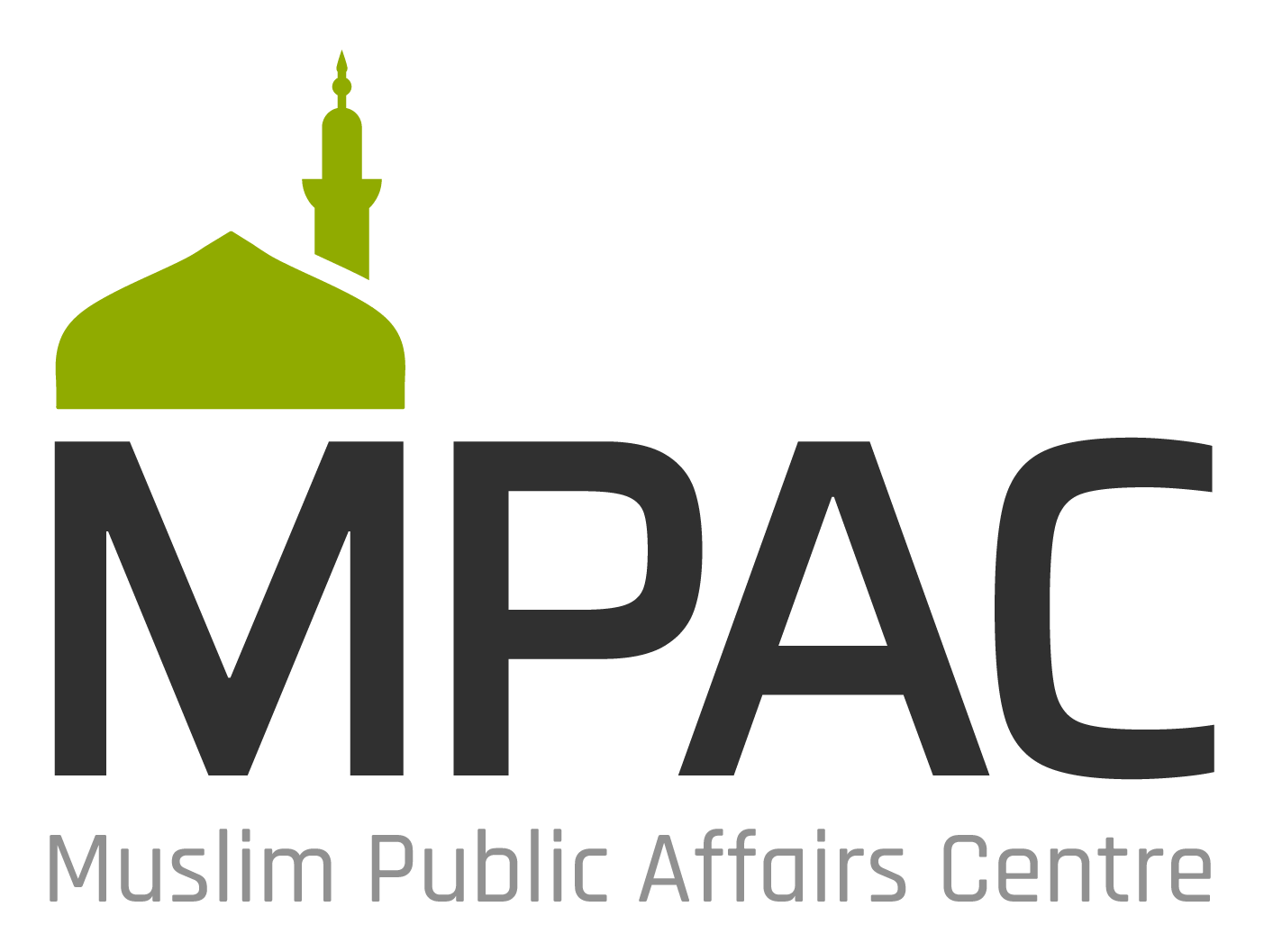

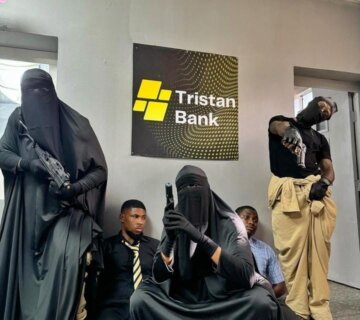
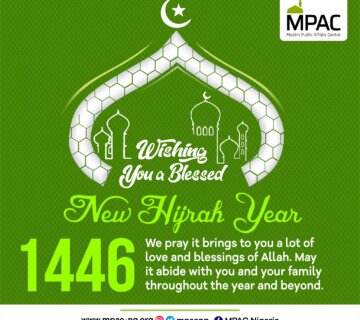

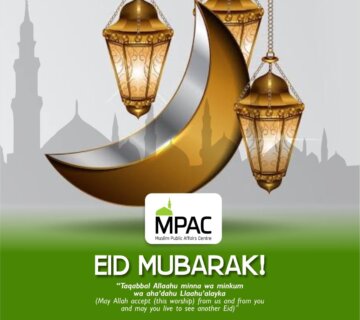
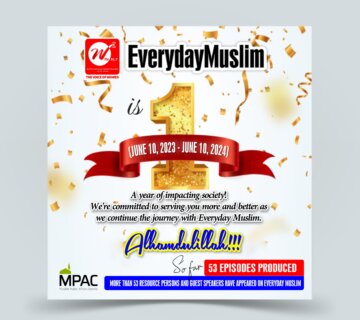
No comment